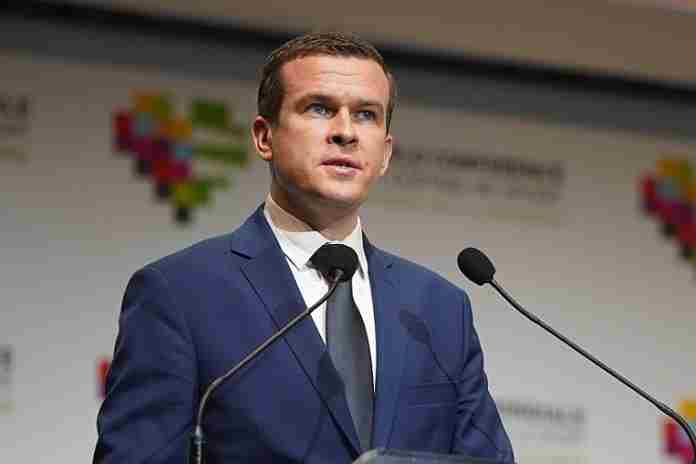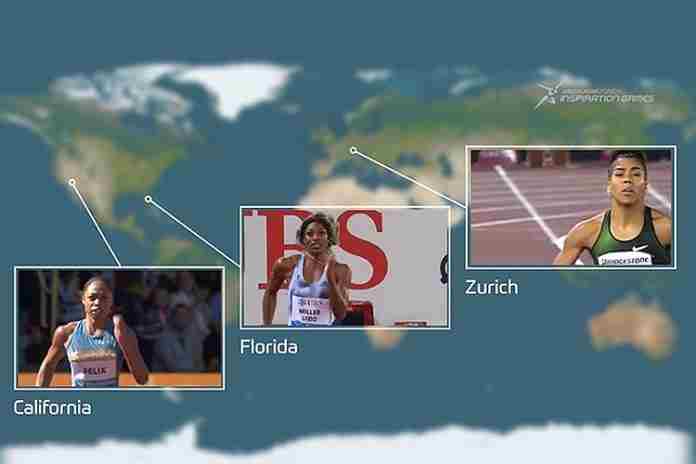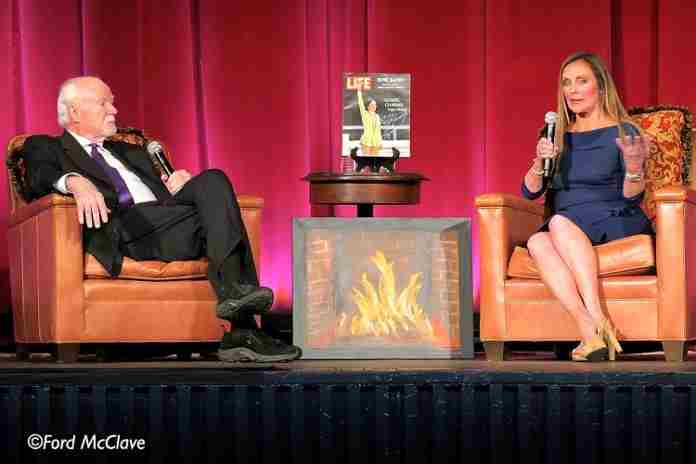News, views and noise from the non-stop, worldwide circus of Olympic sport:
● Games of the XXXII Olympiad: Tokyo 2020 ● Incumbent Yuriko Koike won a second term as governor of the Tokyo Metropolitan Government on Sunday, receiving 59.7% of the vote with her next closest challenger at 13.8%.
Her vote total of 3.661 million is the second-highest ever, with 55% of the eligible voters turning out for the election.
Koike, 67, crushed 21 other candidates in a wild (but brief) election campaign, with a couple of candidates promising to close down the 2020 Olympic effort and move on. Her overwhelming victory is a plus for the 2020 Games, as she has guided the effort that saw the Tokyo government shoulder most of the costs, including the construction of new facilities.
The Japan Times wrote that her expected win “was a tacit sign that a majority of voters in Tokyo trust Koike to continue her battle against the novel coronavirus.” And a major sigh of relief for the Tokyo Olympic organizers and the International Olympic Committee.
● Archery ● An impressive $190,000 in grants was distributed to 35 athletes from 19 countries by World Archery and Foundation for Global Sports Development to battle economic hardship due to the coronavirus pandemic.
Applications were received from 122 athletes in total and the field was cut to 40 and then finally 35. The original distribution was to be $150,000, but more was added with the large number of applicants. Grants were made from $1,500-7,500.
Of the 35 final recipients, ten were Americans:
● Recurve (2): Khatuna Lorig, Jack Williams
● Compound (8): Steve Anderson, Cassidy Cox, Linda Ochoa-Anderson, Tate Morgan, Paige Pearce, Alexis Ruiz, Matt Stutzman, Reo Wilde
It’s worth noting that many of the grantees are in Compound Archery, which is a non-Olympic division and whose athletes therefore get little or no support from National Olympic Committees, which concentrate on those in Recurve (Olympic) archery.
● Athletics ● American sprinter Gabby Thomas was cleared of “whereabouts” failure on Saturday, just as she promised she would be.
Thomas was suspended on 2 May 2020 for missing three tests over a year’s period, but released a statement at the time that she would be cleared:
“Phone tracking data and multiple witnesses will conclusively show that I was at the exact location I established in my whereabouts and that the doping control officer simply failed to locate me and failed to follow proper protocol.
“Athletes are held to an incredibly high standard and the doping control organizations are supposed to be held to similarly high standards.”
Reuters reported that information Thomas provided in June showed that at least she was “not missing” for at least one of the tests.
A “whereabouts” failure penalty of two years could have been implemented; American sprinter Deajah Stevens was also suspended and her case is pending before the AIU Disciplinary Tribunal.
¶
Former marathon world-record holder Wilson Kipsang of Kenya was suspended for four years from 10 January 2020 and had his results from 12 April 2019 annulled by the AIU Disciplinary Tribunal.
Kipsang, who ran 2:03:23 at the 2013 Berlin Marathon, was found to have missed three tests and had a “whereabouts” failure between 27 April 2018 and 17 May 2019. Further, Kipsang submitted false evidence of a traffic jam on 17 May 2019 that caused him to miss a test, but the incident, in fact, took place in August of that year.
Now 38, Kipsang’s last race was a 12th-place finish at the 2019 London Marathon (2:09:18, now expunged). He is eligible to appeal the decision to the Court of Arbitration for Sport.
● Badminton ● Two-time Olympic champion Dan Lin (CHN) announced his retirement last Saturday (4th), saying on social media:
“I’ve dedicated everything to the sport I love. My family, coaches, team mates and fans have accompanied me through many happy times and difficult moments.
“Now I’m 37 years old, and my physical fitness and pain no longer allow me to fight side by side with my team mates.”
Lin was one of the greatest players in history, winning the men’s Singles title at Beijing (2008) and London (2012), along with individual world titles in 2006-07-09-11-13 and runner-up silvers in 2007 and 2017.
He was 19th on the BWF World Rankings list when he retired and ended with a reported all-time record of 666-128 and 66 tournament wins.
China will miss him on the national team, but has 2016 Olympic champ Long Chen (currently ranked fourth) and Yu Qi Shi (9th) as its top men’s players at present.
● Boxing ● What is going on with the AIBA?
Suspended until after the Tokyo Games in 2021, the federation has been struggling with overwhelming debt and the need for new leadership. Its planned election Congress continues to be postponed because of the coronavirus pandemic, but its future may be changing.
On the sidelines of the online convention of the World Boxing Association last week, a meeting was held between AIBA interim chief Mohamed Moustahsane (MAR) and WBA President Gilberto J. Mendoza, with a promise between the two for future collaboration.
Said Mendoza: “We are working on a formal agreement between the WBA and the AIBA to achieve a systematic development that includes both competition and ethics. We are on our way to join our criteria to work for only one boxing. We want to raise boxing to the high status it belongs. This way we can make our committee and team official. We will work together for the future. We will make a boxing rulebook that will be published in the future.”
Moustahsane added: “Since 2015, we have had many conversations and now it’s time to build something great for boxing. For me, and many others, athletes are the most important. I share this ideal of creating a relationship among us. Thank you very much for giving me this opportunity to talk. We must establish a fair and ethical relationship. The development must include medical features, referees, judges and proper official management of this sport. We must ensure that boxers are indeed the ones who benefit from this relationship.”
The WBA will celebrate its centennial next year and is the oldest of the myriad current professional boxing governance associations. If the WBA were to partner with AIBA, it could be the start of a path out of debt and toward renewed interest from the IOC.
But then, since when has professional boxing actually brought respectability to anything?
However, the WBA-AIBA discussions were welcome news, after another wild comment from Russian Boxing Federation Secretary General Umar Kremlev on 26 June. According to the Russian news service TASS:
“Secretary General of the Russian Boxing Federation (RBF) Umar Kremlevtold TASS earlier that his federation was ready to provide assistance to RusAF in the return of Russia’s track and field athletes on the international arena.”
Remember, Kremlev was the one who promised to pay AIBA’s entire debt and then circulated his name as a possible future president of the federation. But the Russian Athletics Federation missed the 1 July payment deadline for the fine imposed by World Athletics and might face expulsion later this year.
He may not be AIBA’s savior either.
● Gymnastics ● The issues concerning which two U.S. Olympic & Paralympic Committee executives will be deposed in the continued USA Gymnastics bankruptcy case were settled last week, with former chief executive Scott Blackmun and long-time senior exec Rick Adams to be questioned.
The USOPC had objected to have either individual travel due to the continuing pandemic and both will now be questioned remotely, by video conference, during the week of 13 July. The USOPC’s Chief Financial Officer, Morane Kerek, will also be deposed.
Both sides in the case have been ordered to “submit a confidential and meaningful settlement offer” by early August, to be subject of mediation to begin in the middle of next month.
● Doping ● Jorge Leyva (MEX), the chief executive of the Institute of National Anti-Doping Organizations (iNADO) issued a news release last Friday supporting the report of the U.S. Office of National Drug Control Policy to “to reaffirm its commitment to Good Governance practices and become a more independent organisation.”
In specific:
“For iNADO, the essence of the ONDCP report is the call for further improvements to WADA Governance. Two proposals of the document are essential to achieve this: more independent members in WADA governance and more participation of athletes in decision making processes.”
And
“Confidence in WADA´s ability to be a strong protector of the clean athlete has been severely affected in recent years and greater efforts need to be made to rebuild trust with the athlete community.”
Then, on Monday, came a clarification:
“As a follow-up to the press release issued on 3 July 2020, iNADO wants to clarify that the support to the ONDCP report is limited to the part suggesting more independence and athletes´ representation at the governing bodies of WADA.”
REAX: Not helpful; it would have been better not to mention the ONDCP report at all and focus on the proposals. And as far as confidence in finding cheats, how about more funding for WADA, now at a paltry $37.4 million annually, half of which is paid by the International Olympic Committee.
Sorry not to hear more from the national anti-doping organizations on how they’re working on that.
● At the BuZZer ● As for WADA, its new president, former Polish 400 m runner Witola Banka told the Polish Press Agency:
“A few people know what motivates this report. Some time ago, the [U.S.] Congress decided that the U.S. Anti-Doping Agency’s (USADA’s) budget and the U.S. financial contribution to WADA were in one envelope. This therefore may indicate that this report is an attempt by USADA to raise more funds for its activities at the expense of WADA. We know that USADA was heavily consulted in the drafting of this report.”
And
“I don’t want to speculate on motives. However, I have the impression that USADA would like to take control of the global anti-doping system. This entire report is an attempt to undermine WADA as a global regulator for anti-doping by framing WADA as an organization that’s allegedly not up to the task.”
Banka, however, is optimistic, adding “We should look for the enemy somewhere else. In the fight against doping in sport, WADA needs the United States, and they need us. I am ready for good cooperation and I am convinced that it will happen sooner or later.”
He also has a sly sense of humor. He closed the interview noting:
“There is no room for politics in this business. It seems to be that, if two strong powers, like the U.S. and Russia, are criticizing us equally, then it may be the best evidence that WADA is an independent organization and can respond to that criticism.”



























